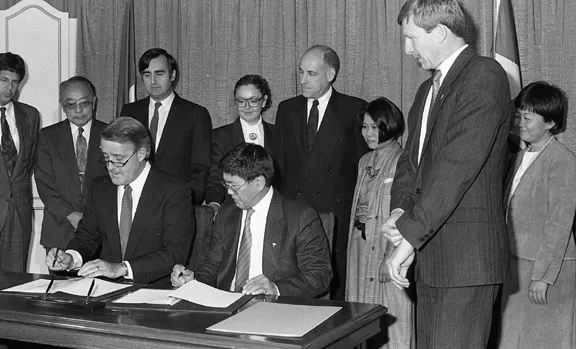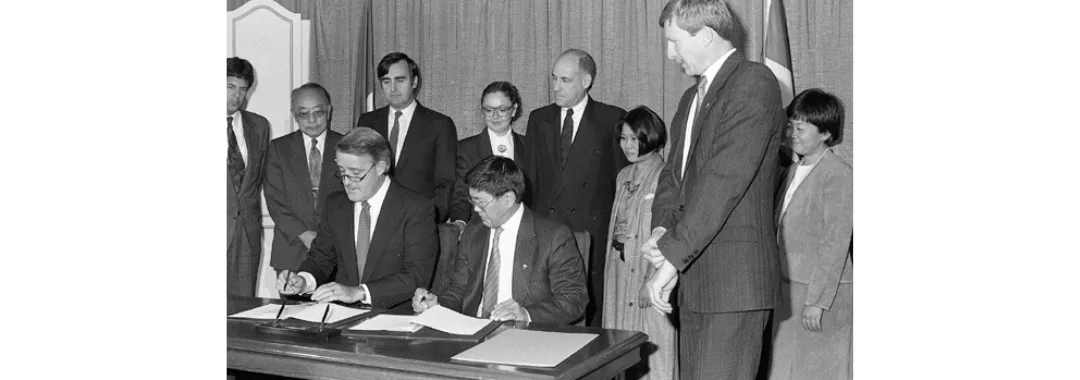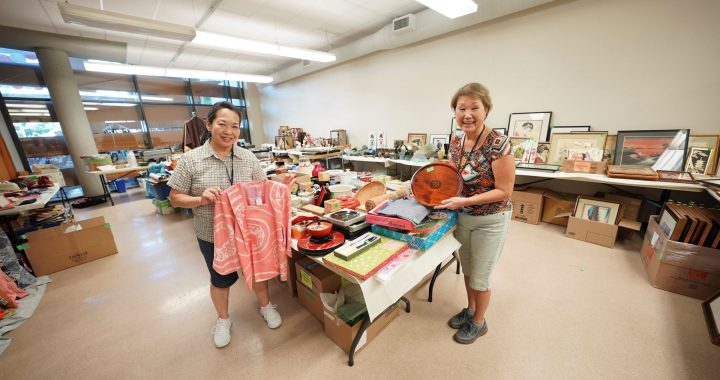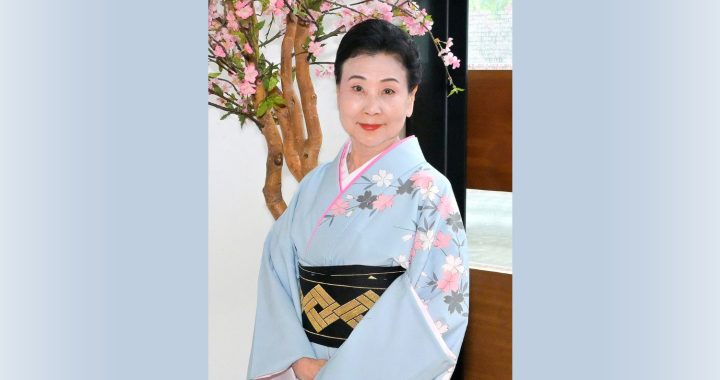Canada is mourning the loss of former Prime Minister Brian Mulroney. For many Japanese Canadians his historic announcement concerning the Redress Settlement stands out amongst his many extraordinary achievements. In his opening remarks to the House of Commons on September 22, 1988, Prime Minister Mulroney stated,
“Mr. Speaker, nearly half a century ago, in the crisis of wartime, the Government of Canada wrongfully incarcerated, seized the property, and disenfranchised thousands of citizens of Japanese ancestry. We cannot change the past. But we must, as a nation, have the courage to face up to these historical facts.
The issue of Japanese-Canadian redress is one which I raised in the House of Commons more than four years ago with the Prime Minister of the day when I was Leader of the Opposition. I said then in this House: ‘There is a world of difference between regret and a formal apology. Canadians of Japanese origin had their rights trampled upon. The reputation of this country was besmirched.’”
The Redress Settlement — which represented a significant stride towards rectifying the injustices faced by Japanese Canadians during and after the Second World War — was negotiated collaboratively between the National Association of Japanese Canadians (NAJC) and the Government of Canada.
The Redress Settlement encompassed a comprehensive approach to justice, including a payment of $21,000 to all Japanese Canadians affected by the provisions of the War Measures Act (Canada), the expungement of criminal records of those charged with offenses under the War Measures Act, the reinstatement of Canadian citizenship of those exiled to Japan, the establishment of a $12 million community fund to help rebuild community infrastructure, and the provision of $24 million — half in the name of the NAJC and half in the name of the Government of Canada — to establish the Canadian Race Relations Foundation. Notably, the Nikkei National Museum & Cultural Centre stands today as a tangible legacy of the community fund, a reminder of the resilience and strength embedded in the fabric of Japanese Canadian history.
As we remember Prime Minister Mulroney, let us also reflect on the enduring impact of the Redress Settlement — a testament to the power of acknowledgment, reconciliation, and the pursuit of justice. We honour the legacy of a leader who played a pivotal role in shaping a more equitable Canada.
May his commitment to justice and compassion inspire us as we continue on the path towards a society that values and upholds the rights and dignity of all its citizens.





